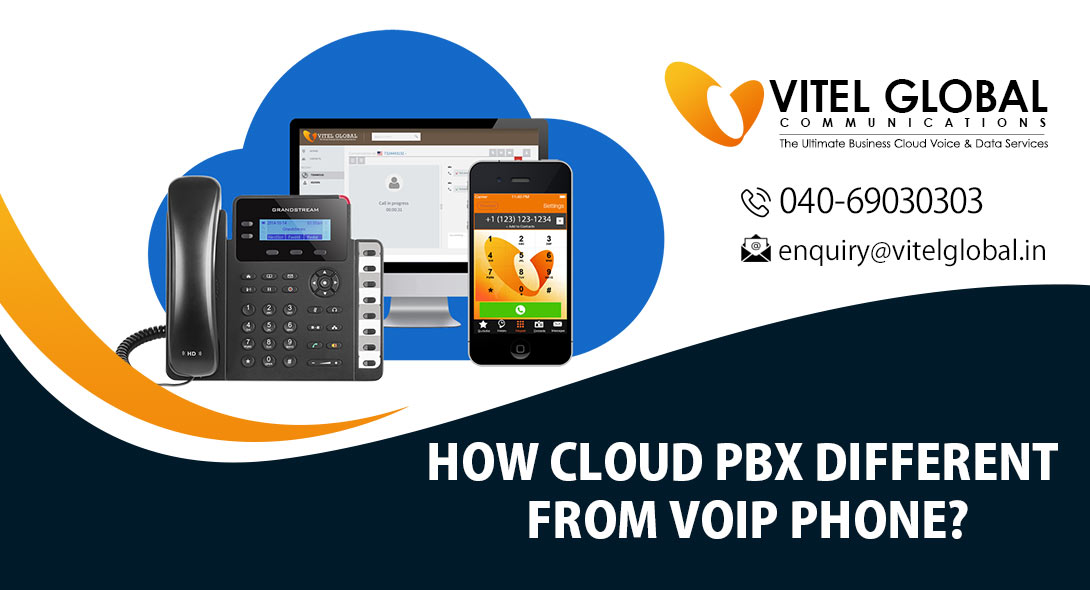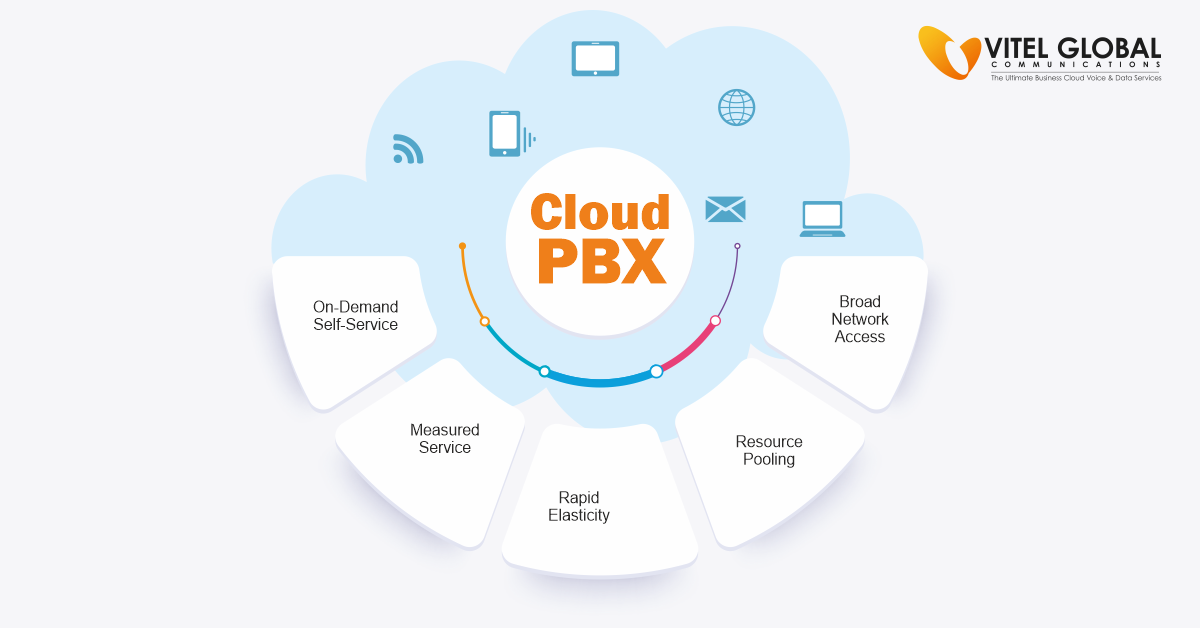Table of Contents
In this blog, you will learn additional information about two significant types of phone systems: PBX and VoIP Phone Service.
Selecting a phone infrastructure is one of the most crucial decisions a business must make. A business phone is still necessary, even with the variety of contact options that are currently available. Since there was no other option in the past, businesses opted for the traditional landline phone. Things are getting complicated right now.
Regarding company phone infrastructure, decisions get stuck between PBX (private branch exchange) and VoIP network (voice over internet protocol). Which is better for your company, and what makes them different?
What Do the Terminology VoIP Phone Service and Cloud PBX Mean?
If our industry’s technical language and acronyms need to be more transparent, we also like to use various terms to refer to the same thing. TDM (time duplex multiplexer) or Key Systems are other names for PBX (Private Branch Exchange). In our industry, these words are frequently interchangeably. A PBX is an on-site phone system not linked to a data network.
Another type of technology used in phone systems is VoIP (Voice over Internet Protocol). VoIP is converting voice into data, packetization, and data network transmission. It can be hosted or on-site. VoIP is a more recent development in the internet-based telephony sector than PBX. However, newer is only sometimes better, just like with most things.
Although both networks’ speeds and quality may be comparable, there are still many differences between them. We have highlighted the critical distinctions between VoIP Phone Service and Cloud PBX below to help you decide which option is best for your company’s needs. You can always contact Vitel Global to arrange a meeting with one of our experts to discuss the best solution for your company.
Cloud PBX vs. VoIP Phone Service: Main Differences
1. Initial Setup Costs
The most significant difference between installing PBX vs. VoIP networks is the cost.
Setting Up a PBX Network is Difficult and Expensive for Your Business. Factors:
It is necessary to make advance purchases of a system power supply, routers, compatible phone sets, and headsets.
Setting up and installing the entire infrastructure will cost much money.
The overall cost may reach thousands of dollars when you require all features. Only large businesses with many employees can afford PBX networks due to the upfront expenses companies must pay.
In contrast, setting up a VoIP network is much less expensive. You do not need to set up a brand-new system if you already have an internet connection. Just make the following investments:
- A router capable of handling VoIP calls with excellent quality
- Phones that support IP technology.
- Software for computer calls
In addition, installing VoIP Phone Service does not require hiring a technician.
2. Monthly Costs
When deciding between cloud PBX and VoIP Phone Service networks, you must consider how much each network will cost to operate and maintain monthly.
The configuration of your PBX will determine this. Typically, you must add up your phone bills, system maintenance, and maintenance problems. Additionally, you will have to pay for phone and software licenses.
VoIP solutions, on the other hand, is typically a paid service. Depending on the calling tool and plan you use, your monthly cost will vary. For example, Vitel Global offers different pricing models according to business needs, and one can choose their plans.
3. Call Quality
Most of us probably recall the early days of VoIP Phone service, when the call quality was far from ideal. Businesses opted for cloud PBX to have high-quality calls. These days, both technologies produce calls of comparable quality, and HD voice calls are becoming increasingly common.
The hardware, which includes the routers and phone models, usually determines the call quality with PBX. Also, the phone models are top-notch by using high-quality phone calls.
VoIP presents a challenge because several factors can contribute to poor sound quality. An internet connection that is unreliable or slow is one of the most frequent causes. The quality of calls may also be affected by your employees’ headsets or the calling platform.
4. Scalability and Ease of Upgrading
A VoIP network can be expanded or upgraded with no issues. You can quickly boost your VoIP plan, purchase additional cloud telephony, or add more users if necessary. You can quickly add a new phone number and start using it if your business needs one (even an international one).
The only thing you need to do is think about upgrading your internet plan. Replacing your current router or phone with a newer model is also acceptable. Even the same VoIP plan can be used across various offices! Changing to a lower plan or removing phone numbers are both simple processes.
Additionally, VoIP has several features that are either not included in PBX phones or would be expensive. You can even ask your VoIP provider to include unique features your business requires.
Meanwhile, scaling a PBX system can be difficult and expensive. If relocating to a new office, you must completely rebuild the PBX infrastructure. However, even something straightforward, like expanding the PBX with more users, takes time. You first need additional lines that call for a different module with a much higher capacity.
You will need a skilled technician for all of those things. Furthermore, changing settings after purchasing new hardware or committing to a lengthy licensing agreement is practically impossible. Similar to including new features. Because you will need a skilled IT technician, doing this might be expensive and challenging.
5. Flexibility
Another factor that can cause business problems is the rigidity of PBX phones. Most PBX phones are proprietary and must work with a specific vendor or system. Are you interested in changing your phone model or supplier? As your current models will not work together, the worst-case scenario is that you will have to replace your entire set of equipment.
Due to the current pandemic, it is clear that this leads to a second problem. PBX phones can only use in your office and with compatible phone models. Therefore, calling from a distance is not an option.
You have a lot more choices when it comes to VoIP systems:
- As long as the phone has a VoIP calling feature, you can use it.
- Additionally, you can utilize them wherever a reliable internet connection is available.
- Even better, your agents may answer calls directly from a computer app or a mobile device.
Agents can answer calls just like they would in the office, regardless of whether they are in traffic or working from home.
6. Reliability and Security
A PBX system can be highly dependable and secure if installed and maintained correctly. There is no risk of a hacker attack because they use a traditional PSTN (Public Switched Telephone Network) rather than an internet connection.
Traditional PBX phones do not depend on electricity, so they will continue to function even if the power is out, so there is no need to worry about power outages. Hardware malfunction is the only issue here. If there is a problem internally, the entire system may need to be serviced by a certified PBX technician, which will cause downtime.
In contrast, because VoIP technology depends on a power source, it goes offline immediately after a power outage. But this is one of many issues; because the technology relies so heavily on an internet connection, any issues or speed drops will harm call quality.
While VoIP service providers are constantly improving the security of their technology, it also depends on your company’s security procedures to prevent hacking or breach attempts. It is simply essential to use call encryption, secure passwords, and a reliable firewall.
Conclusion
There are benefits and drawbacks to both VoIP and PBX. Although IP PBX is dependable, secure, and provides excellent call quality, the system’s initial setup and ongoing maintenance are expensive.
While VoIP is much more scalable and flexible than traditional lines but has significantly lower maintenance costs. However, the quality of calls will suffer if internet connection speeds decline, significantly impacting VoIP performance.
Have you already installed a traditional PBX? You can switch from your outdated PBX system to VoIP with the assistance of Vitel Global and enjoy all the advantages of this technology.







